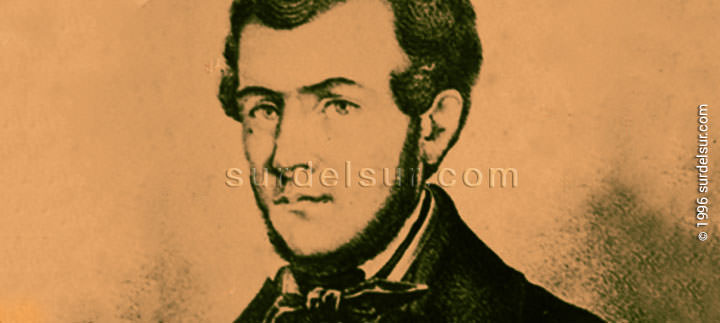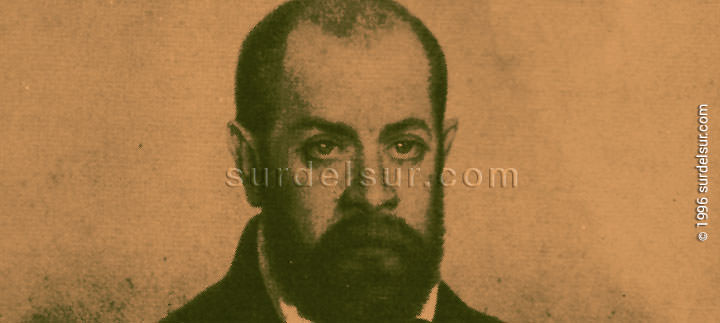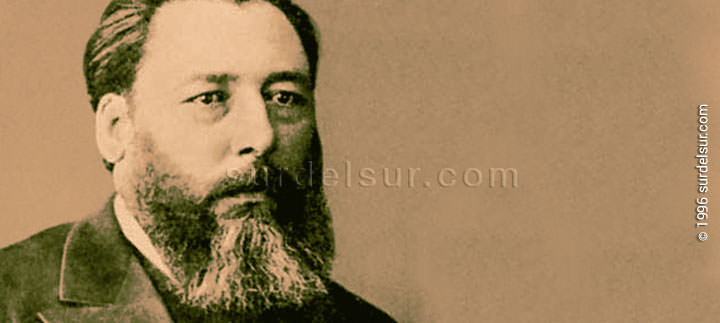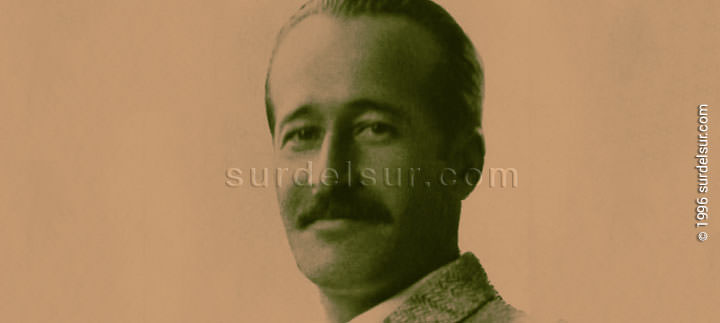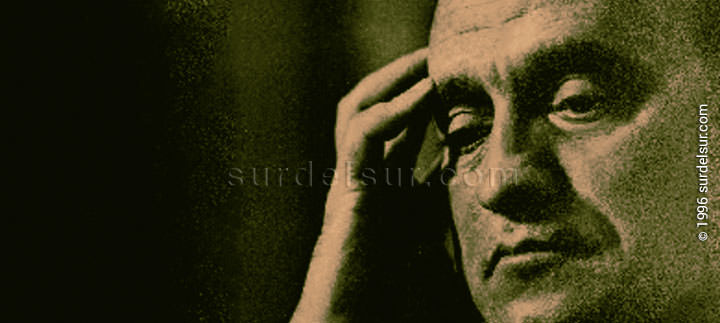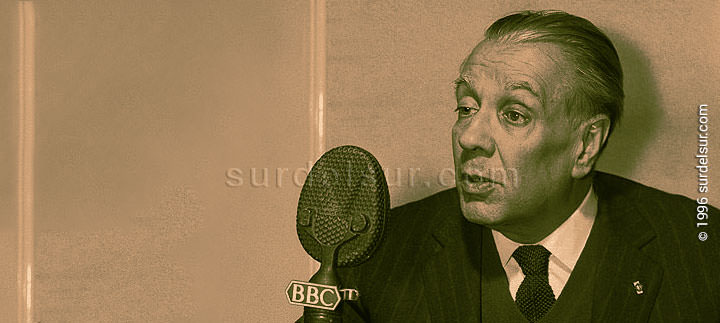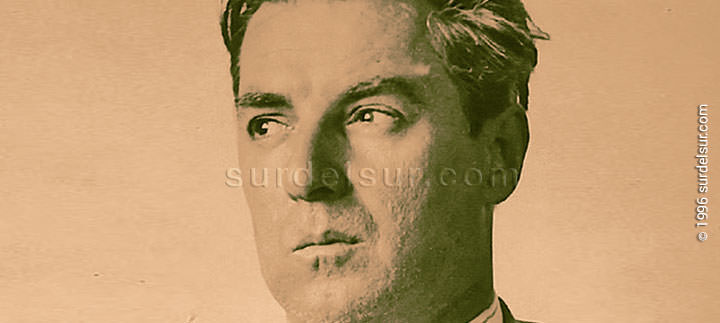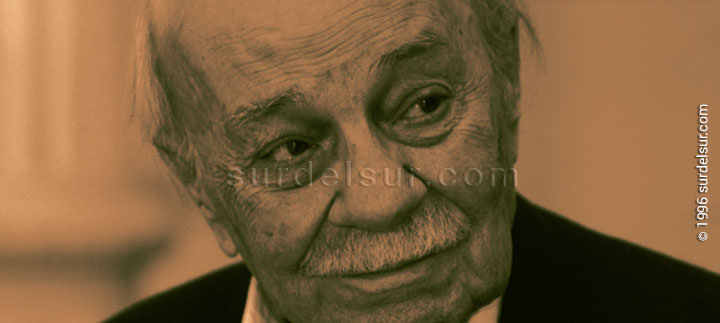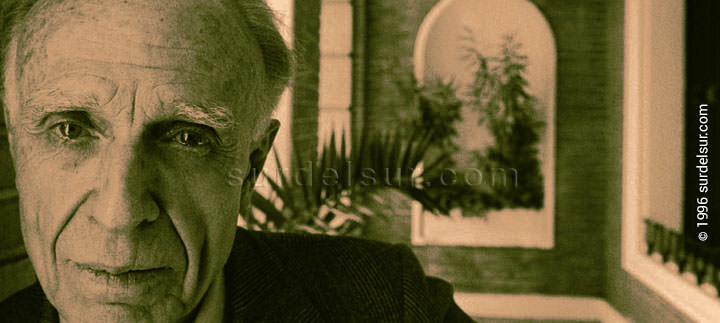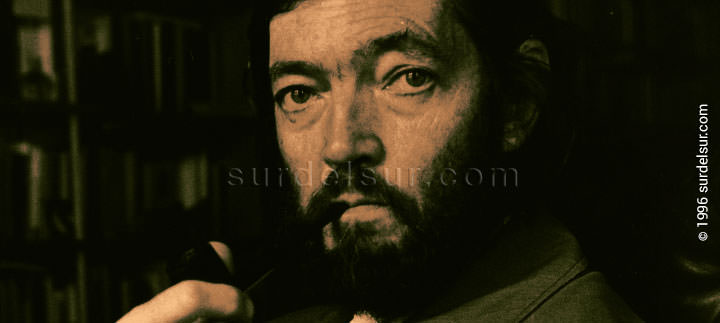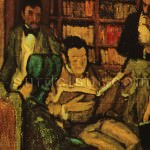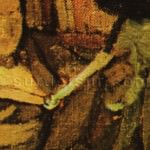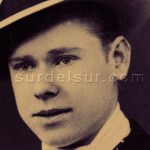Brief report on the 10 emblematic Argentine writers of all times, whose work was a turning point in the history of Argentine literature; and the 10 most representative works that are inscribed as fundamental in Argentine literature.
CONTENTS
Esteban Echeverría (1805-1851)
The story El Matadero is considered the first short story in Argentine literature. It was published in 1876, more than twenty years after his death, and it anticipated the realistic narrative of our country. Its author, Esteban Echeverría, Argentine writer and poet, was one of the most brilliant minds of the so-called ’37 generation.
José Esteban Antonio Echeverría was born on September 2, 1805, in Buenos Aires, the capital of the Viceroyalty of the Río de la Plata. He was educated in the effervescent environment of the May Revolution, and then in France. He stayed there for five years, helped by the politics of Bernardino Rivadavia.
He returned to Buenos Aires in 1830, bringing with him all the influence of European romanticism. So much so that in 1832 he anonymously published Elvira or La Novia del Plata, the first book of romantic poetry in Spanish.
José Esteban Andrés Echeverría Espinosa, such his name complete, is one of the leading brilliant minds of the generation of ’37.
Later, in 1838, he founded the Asociación de Mayo, an institution in opposition to the government of Juan Manuel de Rosas. Outlawed for Rosismo (Doctrine of Juan Manuel de Rosas), he went into exile in 1839 in Montevideo.
Precisely at this time, between 1838 and 1840, threatened by the regime, he wrote his famous story El Matadero. There, he describes the persecution and torture that he, a young Unitarian, suffers from Rosismo (Doctrine of Juan Manuel de Rosas). Later, he would give birth to the Socialist Dogma, together with Juan Bautista Alberdi, which he published in 1846. With this text, he sought to overcome the antinomy between Unitarians and Federals but did not come to glimpse the end of the Rosas dictatorship, which occurred in 1852.
He died at the age of 45, on January 19, 1851, in Montevideo, Uruguay.
Domingo Faustino Sarmiento (1811-1888)
Facundo, a work published in 1845, constitutes the first attempt to address the national reality. His serious and passionate language proposes an interpretive scheme of civilization or barbarism. Its author, Domingo Faustino Sarmiento, was an Argentine educator, journalist, writer, and politician. He became President of the Nation (1868 -1874) and is considered one of the great Spanish-speaking writers of the 19th century. Controversial and controversial, he embodies the contradiction of the historical moment that he lived through.
The great man from San Juan was born at the dawn of the Revolution of May, February 15, 1811. His story is enrolled in the war for independence and internal struggles between unitaries and federals. Finally,
he assists in the consolidation of the Republic.
Outlawed by the dictatorial regime of Rosas, between 1831 and 1855, he spent most of his time in exile, in the Republic of Chile. There, he begins his career as an educator and journalist. From journalism, he fights Rosas. The best of his literary output, too, was written during this period. His most outstanding works are Facundo or Civilization and Barbarism (1845), and Recuerdos de Provincia (1849).
Later, he served as governor of the Province of San Juan between 1862 and 1864 and held the presidency of the Argentine Nation in the period 1868 and 1874. Also, he was elected National Senator for his Province
between 1874 and 1879. He eventually held the Ministry of the Interior of Argentina in 1879.
Years later, on September 11, 1888, he died in Paraguay. He is honored as one of the Fathers of the Nation.
José Hernández (1834-1886)
The great national epic poem Martín Fierro, a masterpiece of gaucho literature, was published in two parts, 1872 and 1879. It is an example of the synthesis of popular rural tradition and high literature. Its author, José Hernández, was an Argentine soldier, journalist, poet, and politician. He led the fight for the ideals of the federation and joined the construction of the state in the ’80s.
José Rafael Hernández y Pueyrredón, was born on November 10, 1834. His childhood was spent in the countryside, in the Camarones area, from the age of 9. There, he lives with his father, after his mother passed away. He arrives in Buenos Aires, after the defeat of Rosas, in Caseros in 1852.
Although he is best known as the creator of the narrative poem Martín Fierro, he also wrote La Vida del Chacho (1863), Los treinta y tres orientales (1867) (The thirty-three Oriental), e Instrucción del Estanciero (1881) (Instruction of the Rancher). The first part of Gaucho Martín Fierro (1872) tells the story of the marginal gaucho and his vicissitudes. He successfully published it upon his return from exile in Brazil. After seven years, the second part, La Vuelta de Martín Fierro (1879), is published. In it, the same character is inserted into society, in a new Argentina, where he plays with the rules of the system.
He too, from his position as a journalist, confronts the Unitarians. He published a series of articles in 1963 about the La Rioja leader, General Ángel Vicente Peñaloza, vilely assassinated by unitary troops. Later, these articles are compiled in the form of a serial in the Life of the Chacho. In that text, he has the first confrontation against the governor of Cuyo Domingo Faustino Sarmiento, and the president Bartolomé Mitre.
Later, under the orders of the caudillo Ricardo López Jordán, he was defeated in the Battle of Ñaembé (1871) in Corrientes. He goes into exile in Brazil and then in Uruguay. He returns in 1875. In 1879 he is elected provincial deputy and later senator.
He died in his country house in the Belgrano neighborhood, on October 21, 1886.
Ricardo Güiraldes (1886-1927)
The novel Don Segundo Sombra, published in 1926, evokes the mythical figure of the gaucho and his values, based on traditions and the Argentina criolla. Ricardo Güiraldes, the author, was an Argentine writer and intellectual, whose main work is an autobiographical story, strongly influenced by the period of adolescence spent in the family ranch in San Antonio de Areco.
Born in 1886 in San Antonio de Areco, Ricardo Guiraldes grew up in an aristocratic family. He spent his childhood in Paris, where he was influenced by French and German literature.
However, his life was marked especially by the time spent as a teenager in La Porteña, his father’s ranch. Here, the germ of his novel Don Segundo Sombra would be born, the literary characters and his environment. Although Guiraldes had a mundane profile and spent his time between Paris and Buenos Aires, he always returned to the Areco estate.
At that time, in 1920, the cultural movement began in Buenos Aires, between the two groups of avant-garde writers. One was the Florida group, and the other was the Boedo group. The Florida group, which met in Richmond, belonged to Güiraldes, who, in 1924, joined Proa along with Pablo Rojas Paz and Alfredo Brandán Caraffa. The publication had been founded in 1922, by Jorge Luis Borges and Macedonio Fernández. However, despite the literary excellence of its authors, the magazine only managed to survive until 1926.
By then, Ricardo Güiraldes, already ill, was finishing his novel in poetic prose, Don Segundo Sombra. With it he won the National Literature Award that same year.
He dies in Paris in 1927, his mortal remains would be transferred to San Antonio de Areco.
Ezequiel Martínez Estrada (1895-1964)
The essay Radiografía de la Pampa (1933) analyzes the Argentine reality, where the interior of the country is confronted with the port of Buenos Aires. Its author, Ezequiel Martínez Estrada, was an Argentine writer, poet, essayist, literary critic, and biographer. A famous autodidact, he dedicated his life to thinking about the country and showed the underlying reality behind the national story.
He was born on September 14, 1895, in San José de la Esquina, Santa Fe, Argentina. For economic reasons, he had to interrupt his studies and began working at the Buenos Aires Central Post Office, where he remained from 1914 until his retirement in 1946.
Between 1918 and 1929, he published six poems and won important literary prizes, among them: the First Municipal Prize for Argentina and the First National Prize for Literature for Humoresca and Light-footed Puppets.
For the second time, he received the First National Prize for Literature in 1937, for the essay Radiografía de la pampa (1933). Sometime later, he published his sequel La cabeza de Goliat (1940), in which he analyzed the city of Buenos Aires and criticized the traditional centralism of Buenos Aires. In order of importance, they were followed by Martín Fierro’s Death and Transfiguration (1948), and Guillermo Enrique Hudson’s The Wonderful World (1951). For Functional Analysis of Culture (1960) he received the Casa de las Américas Award in Cuba, where he served until 1962 as director of the Center for Latin American Studies.
In 69 years he produced almost 60 works. He wrote essays, short stories, biographies, poetry, and plays. He presided over the Argentine Society of Writers (1933/34-1942/46), the Argentine League for the Rights of Man (1957), and, as we already mentioned, La Casa de las Américas (1960/62).
From his stay in Cuba, he returned to Argentina, to Bahía Blanca where he died shortly after, on November 4, 1964
Jorge Luis Borges (1899-1985)
The book of short stories Ficciones, published in 1944, projected its author as the master of contemporary fiction and universal literature. Jorge Luis Borges, writer of stories, poems, and essays; is considered one of the great figures of Hispanic letters of the 20th century. He received numerous distinctions, including the Cervantes Prize in 1979.
Jorge Francisco Isidoro Luis Borges Acevedo was born on August 24, 1899, in Buenos Aires, Argentina. From 1914 his family moved to Europe, and his education took place first in Geneva, and later in Madrid. He returns to Argentina in 1921, already as a writer.
Since 1930, Borges began to become known in our country. He occupies a prominent role in the literary movements of Argentina. He frequented intellectual circles and the Buenos Aires elite. He became friends with the sisters Silvina and Victoria Ocampo, Adolfo Bioy Casares, and Manuel Peyrou.
Time, mirrors and mazes are recurring themes in his work. The three main collections of his stories are Ficciones (1944), El Aleph (1949), and El Hacedor (1960), translated into numerous languages.
Gradual blindness, caused by a congenital disease, ended up prevailing at the age of 50. That did not prevent Borges from continuing his intense activity as a writer. Accompanied by his mother, he made trips and gave lectures. He continued to be an avid reader, having himself read the texts. In 1955, when he assumed the direction of the National Library, he felt in a paradise, which paradoxically he could barely see.
In 1967, at the age of 68, he had a failed marriage experience with Elsa Astete Millán. However, her mother, Leonor Acevedo Suárez, was surely the most important woman in the writer’s life, she led him in the dark until 1975, the year in which she died at the age of 99.
After the death of his mother, Maria Kodama, she would guide him on her journeys. She was a former student, then a secretary, and finally a wife who was Borges’ heiress. She would accompany him to die in his second homeland. He died in Geneva on June 14, 1986, at the age of 86.
Roberto Arlt (1900-1942)
The novel El Juguete Rabioso, published in 1926, incorporates the language of the street and the conflicts of marginalization into literature. Its author, Roberto Arlt, was an Argentine novelist, short story writer, playwright, journalist, and inventor. The vitality of his stories introduces a turning point in the literature of his time.
Roberto Emilio Gofredo Arlt, son of poor Central European immigrants, was born in Buenos Aires, on April 26, 1900. He is expelled from primary school and becomes self-taught. Then he leaves his house at 17 and works what he can. Always criticized by his contemporaries, for his lack of academic training, he was vindicated by the following generations.
Shortly after, in the 1920s, he joined the Boedo Group. They published in Editorial Claridad and met at Café El Japonés.
Los siete locos, his second novel, was published by Editorial Claridad in 1929. Los lanzallamas, a continuation of Los siete locos, appeared a year later. El amor brujo, released in 1932, would be his last novel. He is passionate about the theater and writes 300 Million, in 1932. He also wrote Saverio the Cruel and The Deserted Island.
While Güiraldes, his friend from the Florida group, published his posthumous work Don Segunda Sombra (1926), Arlt gave birth to El Juguete Rabioso (1926). Undoubtedly, with transgressive language for its time, it tells the reality of immigrants. Almost autobiographical, Arlt looks at marginality and the hopelessness of the world that surrounds him.
At barely 42 years old, he died in Buenos Aires, on July 26, 1942.
Ernesto Sábato ( 1911-2011)
The novel Sobre Héroes y Tumbas (1961) proposes a renovation in narrative techniques. Its author Ernesto Sábato was a writer, essayist, and novelist. Undoubtedly, it transcended among the Latin American authors of the 1960s and was projected on the international scene. He obtained the Cervantes Prize in 1984.
Ernesto Sábato was born on June 24, 1911, in the city of Rojas, province of Buenos Aires. He came from a middle-class Italian immigrant family. Around 1937, he obtained a Ph.D. in Physical and Mathematical Sciences from the National University of La Plata. Later, his research work took him to France. There, he met the surreal current, which diverted his vocational course toward literature.
A short time later, in 1940, he returned to Argentina. Soon, he began to publish various articles in the magazine Sur, and in the newspaper La Nación. He wrote numerous essays, among which stand out, Uno y el Universo (1945 – One and the Universe) First Prize of the Buenos Aires Municipality, Hombres y engranajes (1951- Men and Gears), El escritor y sus fantasmas (1963 – The writer and his ghosts), and Apologías y rechazos (1979 – Apologies and rejections).
However, Sábato is basically remembered for his three novels. The first, El túnel (1948 – The Tunnel), is a psychological drama framed in the post-war existentialist current. The second, Sobre héroes y tumbas (1961 – About heroes and graves), is considered one of the best Argentine novels of the 20th century. Lastly, Abaddón el exterminador (1974 – Abaddon the Exterminator) of an autobiographical nature; was awarded in Paris, as the best foreign novel (1976); and later in Italy, with the Medici Prize for the best foreign book (1977)
Finally, Sábato, represented especially in recent years, an ethical paradigm of Argentine society. With the return to democracy, in 1983, he presided over the National Commission on the Disappearance of Persons (CONADEP). The investigation, published in the book Nunca más, was a valuable document, with which the trial of the military juntas of the dictatorship began in 1985.
He dies at the age of 99, on April 30, 2011, in Santos Lugares, Argentina
Adolfo Bioy Casares (1914-1999)
The novel La invención de Morel stood out for inaugurating the genre of fantastic literature in Argentina. Its author, Adolfo Bioy Casares, was a writer of novels, short stories, and essays. He received the First Municipal Prize for Literature in 1941.
Adolfo Bioy Casares, was born in Buenos Aires, on September 15, 1914. The only child, belonging to a Buenos Aires upper-class family. Although he abandoned his university studies, he had a careful education, with knowledge of English, French, and German.
At barely 18 years old, he frequented the circles of intellectuals who met in Villa Ocampo. There, in 1932, Victoria Ocampo would introduce him to what would be his lifelong friend, Jorge Luis Borges, several years older than him. Precisely, with whom he would write in collaboration, using different pseudonyms.
Later in 1940, he married Silvina Ocampo -Victoria’s sister- also a writer. That same year, La invención de Morel was published, with a prologue by Borges, who received the First Municipal Prize for Literature in 1941.
Among the most popular works by Bioy Casares, La invención de Morel (1940 – Morell’s Invention) stands out. Later, in collaboration with Silvina, he writes Los que aman, odian (1946 – Those Who Love, Hate), and the film was directed by Alejandro Maci (2017). Then, El sueño de los héroes (1954 – The Dream of Heroes) whose film version was directed by Sergio Renán in 1997. Also, Diario de la guerra del cerdo (1969 – Pig War Diary), which was made into a film by Leopoldo Torre Nilson in 1975.
Among his numerous prizes and distinctions, are the SADE Grand Prize of Honor (1975), the French Legion of Honor (1981), Illustrious Citizen of the City of Buenos Aires (1986), the Cervantes Prize, and the Alfonso Reyes International Prize ( 1990), and finally the Konex Brilliant Award (1994).
He died in Buenos Aires on March 8, 1999.
Julio Cortazar (1914-1984)
Rayuela (Hopscotch), published in 1963, changed Argentine literature forever, breaking down the borders between the fantastic and the real. Its author, Julio Cortázar, was a teacher, translator, and writer. He is considered one of the most innovative creators of his time. In 1984, he receives the Konex Honor Award in Argentina.
Julio Florencio Cortázar was born in Belgium on August 26, 1914, while his father was stationed at the Argentine embassy in Brussels. By then, the First World War had begun and they took refuge in Switzerland. Later, they return to Buenos Aires in 1918, to the Banfield neighborhood. Around 1932, he is received as a Normal Master. Shortly after, in 1935, he obtained the title of Normal Professor of Letters. However, despite his interest, he is forced to abandon his university studies in Philosophy and Letters, due to lack of means.
He published his first book of poems, Presence (1938), which he refused to republish. Later, in 1939 and 1945, he worked in primary, secondary, and university teaching, giving up the latter with the advent of Peronism. From then on he collaborated with the magazine Huella, Los Anales, Cabalgata, Realidad, and Sur.
Shortly after, in 1948, he obtained the title of public translator of English and French. In time, he gets a scholarship from the French government, settles in Paris, and starts working as a translator for UNESCO. He meets Aurora Bernárdez, also a translator, and gets married in 1953.
Sometime before, his first book of short stories, Bestiario (1951), was published. It was followed by Final del juego (1956 – End of the Game), Las armas secretas (1959 – The Secret Weapons), Todos los fuegos el fuego (1966 – All Fires on Fire), and Octaedro (1974 – Octahedron), which are just an example of his work.
Among his novels, we can mention Los premios (1960 – The Awards), Rayuela (1963 – Hopscotch), 62 Modelo para armar (1968- 62 Model to Assemble), Libro de Emanuel (1973 – Emanuels Book). Without a doubt, it was Rayuela, the work that broke with all the schemes and projected him to popularity.
With his last wife, the American Carol Dunlop, he writes Los autonautas de la cosmopista (1983). Carol died of cancer in 1982. Cortázar, wrapped in a deep depression, fell ill with leukemia. Aurora Bernárdez, his first wife, takes care of him until he dies.
He dies on February 12, 1984, at age 69 in Paris, France.
You may also be interested in the history of Argentine literature >>

